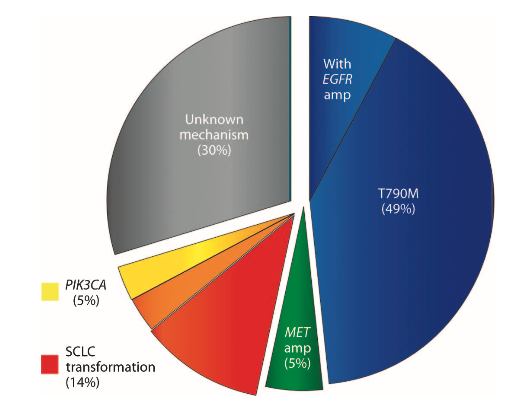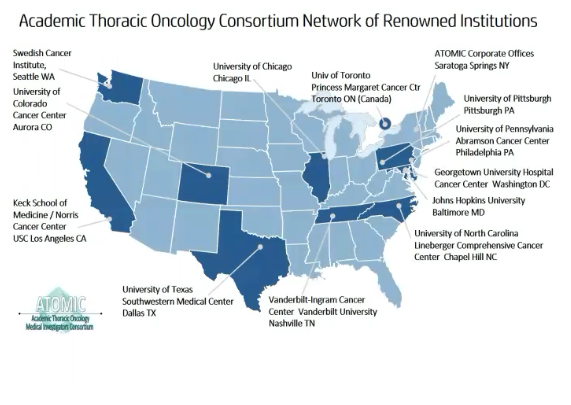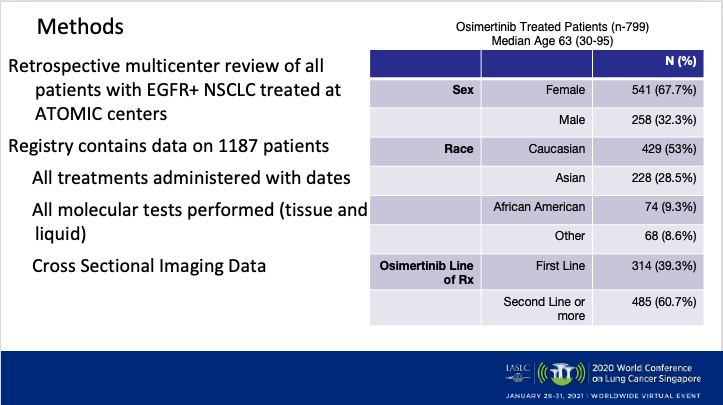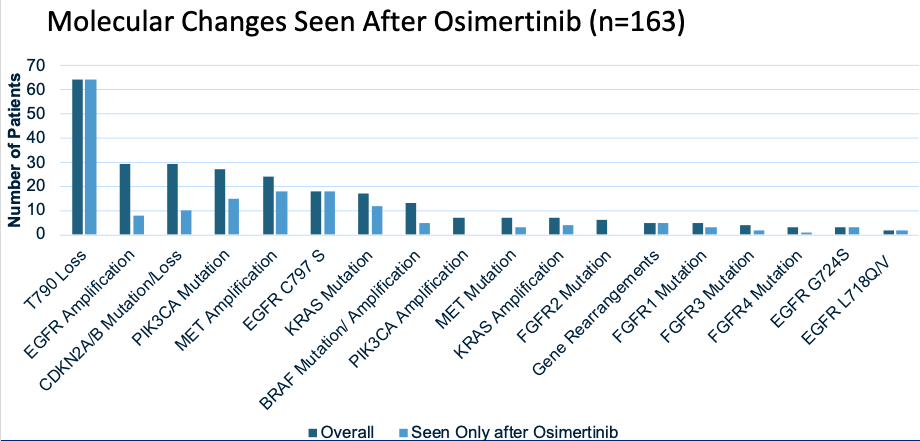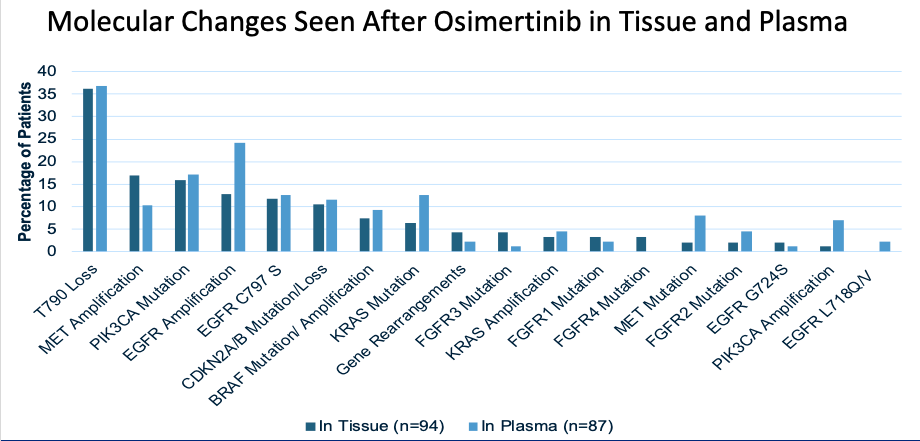The first abstract I want to talk about is a featured poster I am honored to present on behalf of my coauthors. FP14.06. This was a multicenter effort across North America to better characterize mechanisms of resistance to osimertinib. @StephenVLiu @VamsiVelcheti #LCSM #WCLC20
Thanks to seminal work (including @LeciaSequist @ZPiotrowskaMD @HelenaYu923 @DrSteveMartin and others!) in the study of EGFR+ NSCLC, we learned more about TKI resistance , and we can take advantage of that to get responses. The best example of this is T790M #LCSM #WCLC20
Based on this, many of us use serial molecular profiling to provide 2L targeted therapy for patients with EGFR+ NSCLC on TKI, but single center series are limited by relatively small sample sizes. Our team thought if we could pool our data we could get some power #LCSM #WCLC20
The ATOMIC consortium is a group of thoracic oncologists from North America. We received funding from @AstraZeneca to build a registry of pts with EGFR+ NSCLC. The registry contains all treatments given, molecular tests performed, and radiologic results #WCLC20 #LCSM
The registry contains data on 1187 patients with EGFR+ NSCLC. This analysis is focused on the 799 patients that received osimertinib, but there is clearly the opportunity to mine this database in the future to learn more about this deadly disease. #WCLC20 #LCSM
We looked at the 163 patients for whom we had NGS data after osimertinib. We found that T790 loss was a common molecular change, and this happened mostly after O treatment. In contrast, EGFR amplification and CDKN2A/B loss often preceded and followed O. #LCSM #WCLC20
How did changes compare between tissue and liquid testing? Consistent with prior work, we see that liquid and tissue testing had pretty similar results in terms of mechanisms of resistance seen, though amplification was called more often on plasma #LCSM #WCLC20
The last portion of our poster looks at mechanisms of resistance seen for 1L vs 2+L O. Not surprisingly, T790 loss was much more common with 2+L O (with 1L O T790 likely wont develop). Interestingly, gene rearrangements were also only seen with 2+L O. #WCLC20 #LCSM
Where are we going next with this project? We are going through the registry right now to annotate each molecular alteration as per genetic registries like @OncoKB and @gnomad_project to determine which alterations are more likely to be clinically relevant. #WCLC20 @LCSM
We are also working to incorporate results from PCR, FISH and IHC testing that was done, as well as histologic transformations. We are hopeful that this registry will prove a rich source of data to better understand this disease #LCSM #WCLC20
This project was such a huge lift for all of my colleagues. I want to thank all of my co-investigators, the team at Criterium/ATOMIC, @AstraZeneca, and all of the patients we have the honor of treating. @EGFRResisters

 Read on Twitter
Read on Twitter
